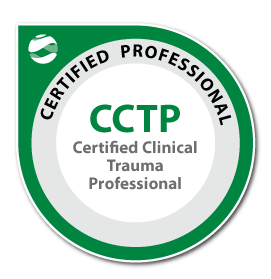Cognitive Behavioral therapy for depression and anxiety
Why am I sad? What is wrong with me? We all face moments in life where ask questions similar to these; however, people ask these questions because of a more serious form of depression.
Before we go any further, we just want you to know that there is nothing wrong with you. The sadness you feel should not define you either.
In fact, everyone feels sad at some point in their life. However, for some it is more than just a passing feeling. According to studies, major depression affects around 6.7% of the United States population. With a modern understanding of the brain we now have the ability to help people overcome those feelings of hopelessness.
This has been at the heart of treating patients with severe depression and anxiety for the past 50 years. Over the course of this time, a number of different treatments have become available to help patients deal with their depression successfully.
One of the most effective treatments is cognitive behavior therapy (CBT).
CBT helps patients by changing their thoughts and beliefs about themselves, while also altering their behaviors and actions. For those with depression, the therapy has successfully assisted patients reduce the hopelessness and despair in their life.
Three Steps to Help Diminish Depression with Cognitive Behavior Therapy
Identify problems- The first step in CBT is identifying the troubling behaviors and thought patterns that lead to depression. Without being able to pinpoint what is at the heart of the matter, it is not possible to solve the underlying stressors.
Therapists do this through a series of questions to help them understand. The simplistic version of a Sigmund Freud asking a patient lying down on a couch what ills them is the common image of this process.
Fortunately, in the 80 years since Freud created this technique, tens of thousands of professionals around the world have refined it. It is this understanding that allows psychotherapists to detect what challenges are causing the anxiety and depression you face.
Understanding behaviors- Once, we identify the problem; we can then understand the behaviors harming you.
For example, CBT Oxford published a case study about a woman they helped named Robyn. Robyn was a middle age woman who was going through some difficulty in her life. She was laid off her job, going through a divorce, and her son was leaving to go to college.
While it is not possible to just say get rid of negative thoughts, a great way to monitor the behavior is to have Robyn journal her negative thoughts and reactions to those thoughts.
Additionally, she agreed to become more active in life. Whether that was going for a daily bike ride or hanging out with friends 2-3 times a week was up to her. The idea was to start making small changes in her life that could shift her focus.
In the end, Cognitive Behavior Therapy is more about the small changes that we make repeatedly in our daily lives that make a long-lasting impact.
Action plan- To make these small changes, we need long-term strategies that a patient can perform every day.
Take a recovering alcoholic suffering from depression. In this case, the therapist will not only want to help the alcoholic change their behavior, but have a plan to avoid situations that lead to drinking.
An action plan deals gives the person a roadmap of what to do. Like the commercials from the 80’s- Just say NO! It is not that we did not know that you could say NO to drugs, but having the right verbiage helped millions of teens around the United States stay off drugs.
The same process works for a recovering alcoholic.
How will Cognitive Behavior Therapy Help You
CBT can become a great guide for moving you in the right direction. However, remember that it will only help so much. If you want the most out of your sessions, you must be committed to coming up with a plan and identifying problems in session, and also working on them in-between sessions.
Cognitive Behavior Therapy is not a miracle cure that will solve all your challenges in one day, but a long-term process that can heal your pains in your life. If you are committed to do that, please call our office at 847-824-8366 for a private conversation about how we can help you.




